Home
The number of people who had died from the coronavirus disease Covid-19 in the UK by Sunday 5 April was 4,313, compared with a total of 1,228 by 29 March, and of 281 by 22 March. In the following two days the total rose to 5,373. Boris Johnson, the Prime Minister, was taken to hospital after his Covid-19 symptoms had persisted for ten days, and then to intensive care. His fiancée, Carrie Symonds, roughly six months pregnant, had spent a week in bed with Covid-19 symptoms. The aim was for there to be 100,000 coronavirus tests a day in England by the end of April, Matt Hancock, the Health Secretary, said; by 1 April 10,650 people a day were being tested. Dr Catherine Calderwood resigned as Chief Medical Officer for Scotland after the Chief Constable of Police Scotland publicly rebuked her for twice visiting her second home in Fife. Lambeth council closed Brockwell Park (an area of 607,565 square yards) after 3,000 people visited it on one day. Mr Hancock threatened to make exercise outside the home illegal. Lord Armstrong of Ilminster, cabinet secretary from 1979 to 1987, died aged 93. The actress Honor Blackman died aged 94. Eddie Large, the comedian, died aged 78 after developing Covid-19 while in hospital with heart failure. The flamboyant 7th Marquess of Bath died of Covid-19 aged 87.
I hope in the years to come everyone will be able to take pride in how they responded to this challenge,’ the Queen said in a televised message from Windsor watched by 24 million in Britain. Her conclusion was: ‘We will be with our friends again; we will be with our families again; we will meet again.’ About 950,000 successful applications for universal credit were made in the last two weeks of March, compared with 100,000 normally. Debenhams went into administration. Farmers urgently sought help replacing the 80,000 seasonal migrant workers usually active in husbandry and harvesting. Few shops still allowed to open were accepting cash. London railway termini acquired an eerie silence. Mobile phone masts at Melling, near Liverpool, and Sparkhill, Birmingham, were set on fire under the misapprehension that they spread coronavirus.
After the Sunday Times reported that the Abu Dhabi National Exhibitions Company was charging between £2 million and £3 million a month rent for the site of the Nightingale Hospital at the ExCel centre, it decided not to after all. Four boats in the Channel carrying 53 migrants were intercepted by Border Force. Sir Keir Starmer was elected leader of the Labour party; Angela Rayner was elected deputy leader. Sir Keir appointed Lisa Nandy as shadow foreign secretary, Anneliese Dodds as shadow chancellor and Nick Thomas-Symonds as shadow home secretary.
Abroad
By Sunday 5 April, 64,103 people had died with Covid-19 worldwide (30,982 a week earlier). Italy had seen 15,362 deaths (10,023 a week earlier); Spain 11,744 (6,528); the United States 8,243 (2,231), with 3,565 deaths in New York alone; China 3,326 (3,300). The daily number of deaths in Italy and Spain fell, but rose in France. In America, the Centers for Disease Control and Prevention recommended that people wear cloth masks in crowded areas, but President Donald Trump said: ‘I don’t think I’m going to be doing it.’ Jerome Adams, the US surgeon general, said: ‘This is going to be the hardest and the saddest week of most Americans’ lives.’ A tigress in the Bronx Zoo caught the virus.
The United States was accused of redirecting for its own use 200,000 masks bound for Berlin’s police force but confiscated in Bangkok. Germany lifted its ban on seasonal farm workers entering the country, announcing that farms could bring in 80,000. Shares in the Chinese coffee chain Luckin Coffee slumped after the company said employees had faked sales figures of £250 million in 2019.
Bnei Brak, a town near Tel Aviv of 198,000 mostly Haredi Jewish inhabitants, was declared a ‘restricted zone’ after 38 per cent of its residents were thought to have caught coronavirus. Saudi Arabia asked Muslims planning to go on the Hajj in July and August to delay booking. In St Peter’s, Rome, the Pope performed the liturgy initiating Holy Week with only a few allowed to attend and widely separated. The High Court of Australia quashed Cardinal George Pell’s conviction for abusing two boys in a Melbourne cathedral in the 1990s; he was freed. Peru decreed that men could leave their homes on Mondays, Wednesdays and Fridays; women on Tuesdays, Thursdays and Saturdays; and on Sundays, no one. CSH
Got something to add? Join the discussion and comment below.
Get 10 issues for just $10
Subscribe to The Spectator Australia today for the next 10 magazine issues, plus full online access, for just $10.
You might disagree with half of it, but you’ll enjoy reading all of it. Try your first month for free, then just $2 a week for the remainder of your first year.

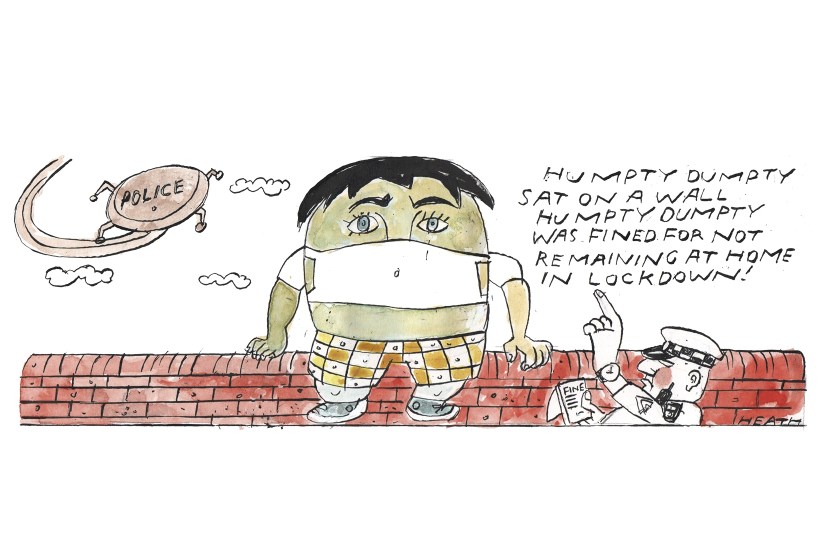
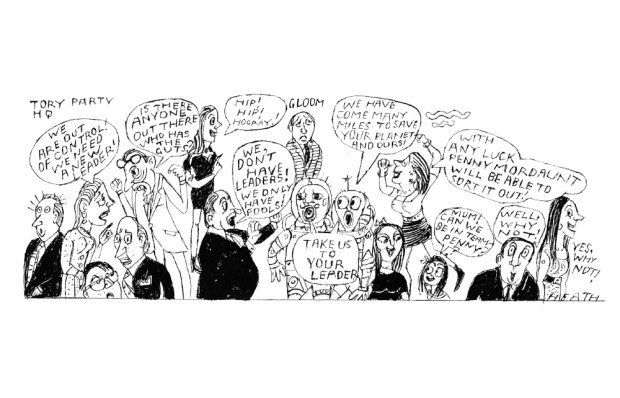
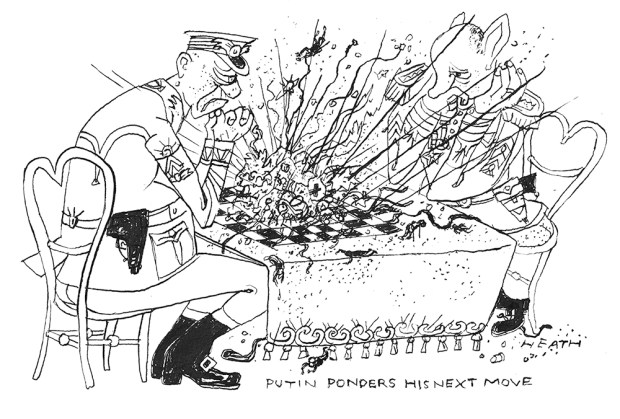
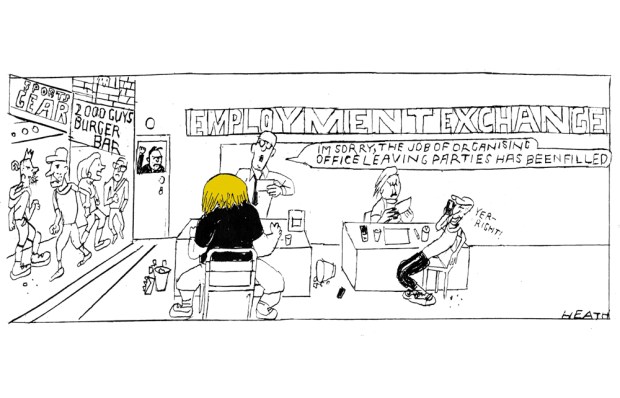
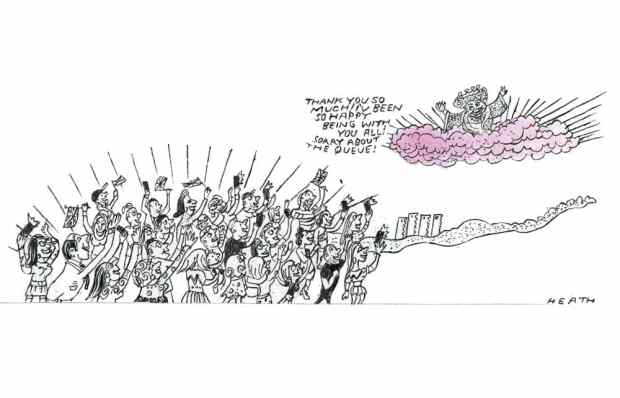
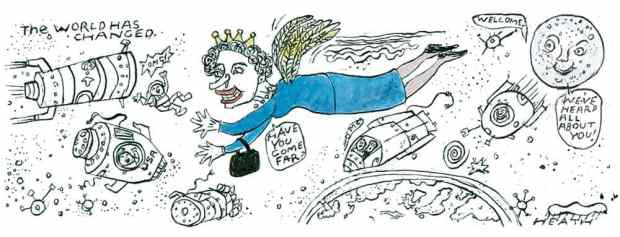
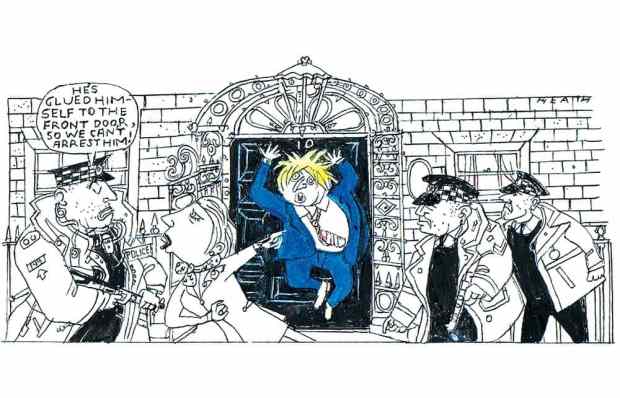






Comments
Don't miss out
Join the conversation with other Spectator Australia readers. Subscribe to leave a comment.
SUBSCRIBEAlready a subscriber? Log in